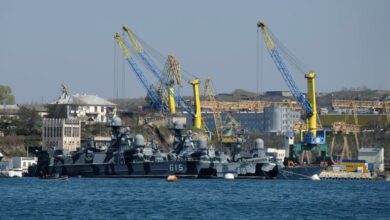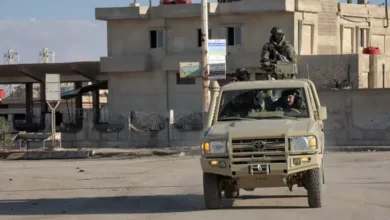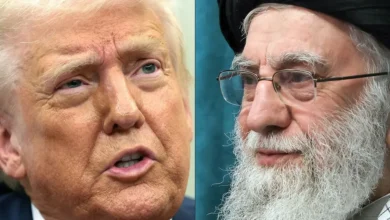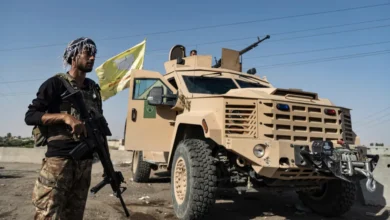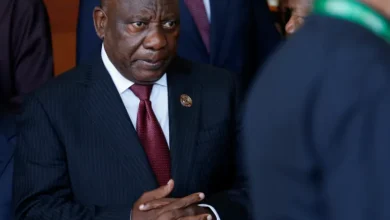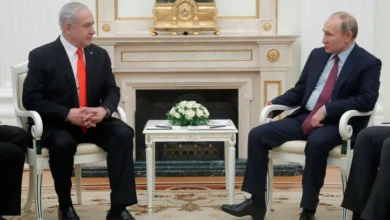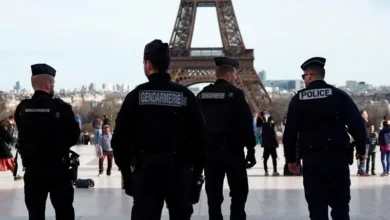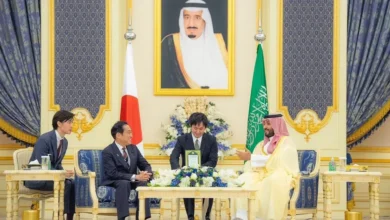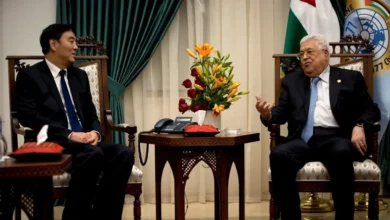Genocide or tragedy? Ukraine, Poland at odds over Volyn massacre of 1943
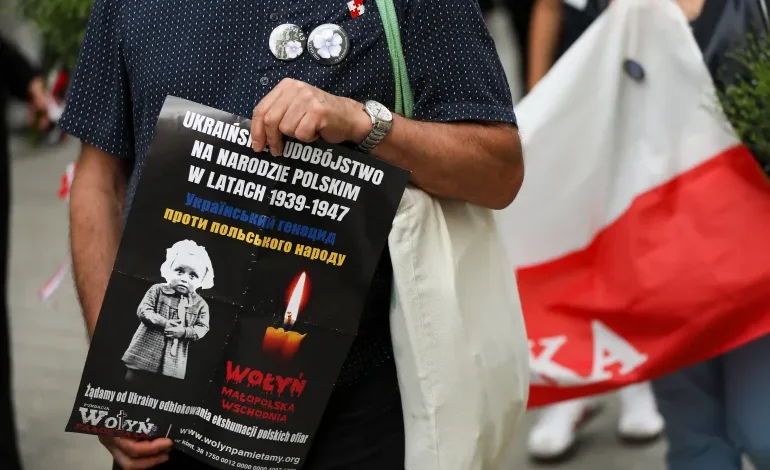
Nadiya escaped the rapists and killers only because her father hid her in a haystack amidst the shooting, shouting and bloodshed that took place 82 years ago.
“He covered me with hay and told me not to get out no matter what,” the 94-year-old woman told Al Jazeera – and asked to withhold her last name and personal details.On July 11, 1943, members of the Ukrainian Insurgent Army (UIA), a nationalist paramilitary group armed with axes, knives and guns, stormed Nadiya’s village on the Polish-Ukrainian border, killing ethnic Polish men and raping women.
“They also killed anyone who tried to protect the Poles,” Nadiya said.
The nonagenarian is frail and doesn’t go out much, but her face, framed by milky white hair, lights up when she recalls the names and birthdays of her grand- and great-grandchildren.
She also remembers the names of her neighbours who were killed or forced to flee to Poland, even though her parents never spoke about the attack, now known as the Volyn massacre.
“The Soviets forbade it,” Nadiya said, noting how Moscow demonised the UIA, which kept fighting the Soviets until the early 1950s.
Nadiya said her account may enrage today’s Ukrainian nationalists who lionise fighters of the UIA for having championed freedom from Moscow during World War II.
After Communist purges, violent atheism, forced collectivisation and a famine that killed millions of Ukrainians, the UIA leaders chose what they thought was the lesser of two evils. They sided with Nazi Germany, which invaded the USSR in 1941.But another UIA leader, Roman Shukhevych, was accused of playing a role in the Holocaust – and in the mass killings of ethnic Poles in what is now the western Ukrainian region of Volyn and adjacent areas in 1943.Genocide?
Up to 100,000 civilian Poles, including women and children, were stabbed, axed, beaten or burned to death during the Volyn massacre, according to survivors, Polish historians and officials who consider it a “genocide”.
“What’s horrifying isn’t the numbers but the way the murders were carried out,” Robert Derevenda of the Polish Institute of National Memory told Polskie Radio on July 11.This year, the Polish parliament decreed July 11 as “The Volyn Massacre Day” in remembrance of the 1943 killings.
“A martyr’s death for just being Polish deserves to be commemorated,” the bill said.
“From Poland’s viewpoint, yes, this is a tragedy of the Polish people, and Poland is fully entitled to commemorate it,” Kyiv-based analyst Igar Tyshkevych told Al Jazeera.
However, rightist Polish politicians may use the day to promote anti-Ukrainian narratives, and a harsh response from Kyiv may further trigger tensions, he said.
“All of these processes ideally should be a matter of discussion among historians, not politicians,” he added.
Ukrainian politicians and historians, meanwhile, call the Volyn massacre a “tragedy”. They cite a lower death toll and accuse the Polish army of the reciprocal killing of tens of thousands of Ukrainian civilians.
In post-Soviet Ukraine, UIA leaders Bandera and Shukhevych have often been hailed as national heroes, and hundreds of streets, city squares and other landmarks are named after them.

